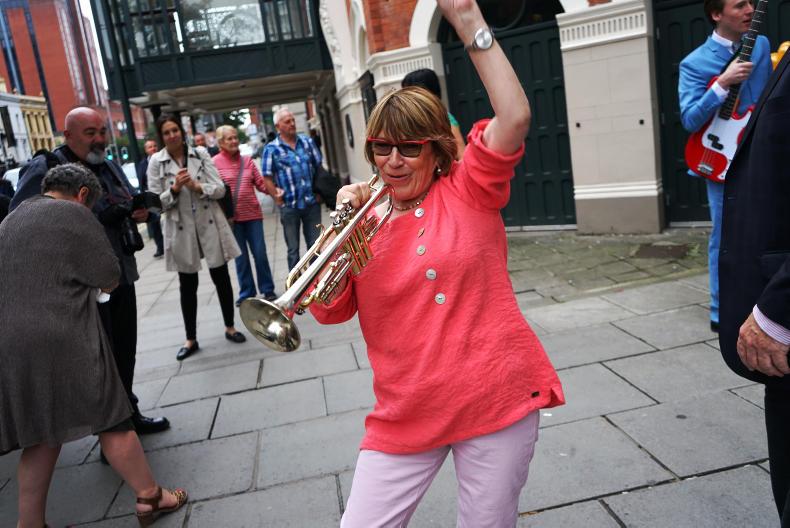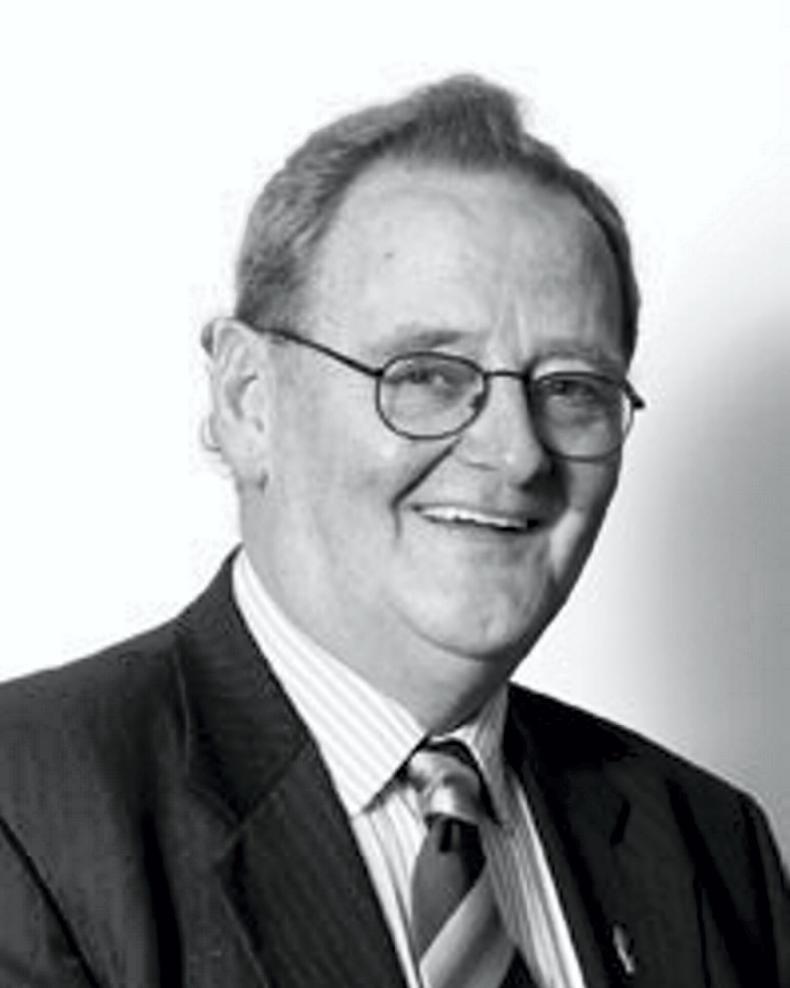The showband era touched the lives of many across the island of Ireland. Whether you remember loading onto a bus en route to the dancehall yourself – a Club Milk and red lemonade the refreshments awaiting you – or your parents regaling you with stories of the role it played in their romance, almost everyone can make a connection.
The most famous of all the showbands was of course, The Miami Showband. First led by Dickie Rock, throughout the 60s and 70s The Miami Showband were the pinnacle of fame in this country. The band brought great joy to the very many people they got out dancing.
But The Miami Showband also suffered great tragedy. Many will be familiar with what is referred to as ‘The Miami Showband Massacre’, where three of the band’s members were killed at a fake military checkpoint in Co Down while crossing the border late at night returning to Dublin after a gig.
This story, with its highs and lows, has been immortalised forever in a new musical, The Miami Showband Story, currently touring the country. Marie Jones co-wrote the play alongside Martin Lynch, the pair having previously teamed up for The George Best Story.
The show is really about the spirit of the times, the 60s and 70s when the showbands were a complete phenomenon
Speaking with Irish Country Living, Marie explains that their aim was to show the positive, the negative and how the band carried on despite tragedy. Both Belfast-born writers were big fans of The Miami Showband and frequented the dancehalls to see them.
“The show is really about the spirit of the times, the 60s and 70s when the showbands were a complete phenomenon. They got everyone out of the houses dancing seven nights a week,” says Marie.
“Before the showbands, people were going to their own parish halls or staying within their own communities, but suddenly the showbands came, people started to travel and people started to meet people outside of their own background, particularly in Belfast.
“That culturally started a whole different scene here. We wanted to focus on that as well, how it brought young people out. Even when the Troubles started here in the late 60s, young people were saying, ‘We still want to go out and we still want to dance’. Miami and many other showbands did that, but Miami were particular, because they were the biggest and the best.”
Charabanc
Before Marie got into playwriting she was an actress (one of her film roles was Sarah Conlon in In the Name of the Father). At the time in the profession the main problem she encountered was the lack of quality roles for women.
“Most of the plays that were being done here at the time were either big musicals or plays that didn’t have any decent parts for women. Every time there was a decent part for a woman they would bring someone over from England,” she explains.
To combat this issue, Marie and a few other women in the same position came together to discuss producing their own plays.
We wanted to have male characters, but we couldn’t find any male actors
“We talked for a long time about that and then we sort of collectively did our first play, but out of that I emerged as the writer, everyone had other skills and so we continued that company for 10 years, it was called Charabanc.
“Because we didn’t have any male actors, but we had male characters, we just put on a cap and a coat and played them ourselves. That emerged as a style, very much a style, because we didn’t want to do a play with just female characters. We wanted to have male characters, but we couldn’t find any male actors, so we just played them ourselves and that became our trademark if you like.”
Charabanc’s first play, Lay Up Your Ends, dealt with women working in the linen industry in Belfast. It not only made a mark because of its all-female cast, but also because it portrayed the trials and tribulations of ordinary working women.
“When we opened the play all the women who had worked in the mill were queueing to see it. There were queues right down outside the theatre, right around. I mean you had never seen anything like it. They thought, for the first time, somebody is portraying our lives.
I think it has been translated into 38 languages all over the world, which is great - my pension
“That play went on to be very successful and we went on to perform it in what was at the time the Soviet Union. Within nine months we were sitting on a plane to Moscow, saying, ‘How did that all happen?’”
Since then, Marie has gone on to enjoy a long career in playwriting, both with Charabanc and independently. Her play, Stones In His Pockets, was performed on Broadway. “I think it has been translated into 38 languages all over the world, which is great - my pension,” she laughs.
The playwright has no regrets about switching from acting to writing. Her husband Ian McElhinney is an actor (Grandpa Joe in Derry Girls) and this keeps her in touch with the acting world.
“When people ask me to do plays I think, I don’t want to say the same thing over and over again every night. Writing for me, everything is fresh and new each time. I find it far more creative, far more interesting. I’m happy just to sit up in my wee room at my computer and have a laugh to myself.”
The Miami Showband Story plays UCH, Limerick; Theatre Royal, Waterford; Science Arts Centre, Meath and the Gaiety Theatre, Dublin this month.
Read more
Cork via Derry
The showband era touched the lives of many across the island of Ireland. Whether you remember loading onto a bus en route to the dancehall yourself – a Club Milk and red lemonade the refreshments awaiting you – or your parents regaling you with stories of the role it played in their romance, almost everyone can make a connection.
The most famous of all the showbands was of course, The Miami Showband. First led by Dickie Rock, throughout the 60s and 70s The Miami Showband were the pinnacle of fame in this country. The band brought great joy to the very many people they got out dancing.
But The Miami Showband also suffered great tragedy. Many will be familiar with what is referred to as ‘The Miami Showband Massacre’, where three of the band’s members were killed at a fake military checkpoint in Co Down while crossing the border late at night returning to Dublin after a gig.
This story, with its highs and lows, has been immortalised forever in a new musical, The Miami Showband Story, currently touring the country. Marie Jones co-wrote the play alongside Martin Lynch, the pair having previously teamed up for The George Best Story.
The show is really about the spirit of the times, the 60s and 70s when the showbands were a complete phenomenon
Speaking with Irish Country Living, Marie explains that their aim was to show the positive, the negative and how the band carried on despite tragedy. Both Belfast-born writers were big fans of The Miami Showband and frequented the dancehalls to see them.
“The show is really about the spirit of the times, the 60s and 70s when the showbands were a complete phenomenon. They got everyone out of the houses dancing seven nights a week,” says Marie.
“Before the showbands, people were going to their own parish halls or staying within their own communities, but suddenly the showbands came, people started to travel and people started to meet people outside of their own background, particularly in Belfast.
“That culturally started a whole different scene here. We wanted to focus on that as well, how it brought young people out. Even when the Troubles started here in the late 60s, young people were saying, ‘We still want to go out and we still want to dance’. Miami and many other showbands did that, but Miami were particular, because they were the biggest and the best.”
Charabanc
Before Marie got into playwriting she was an actress (one of her film roles was Sarah Conlon in In the Name of the Father). At the time in the profession the main problem she encountered was the lack of quality roles for women.
“Most of the plays that were being done here at the time were either big musicals or plays that didn’t have any decent parts for women. Every time there was a decent part for a woman they would bring someone over from England,” she explains.
To combat this issue, Marie and a few other women in the same position came together to discuss producing their own plays.
We wanted to have male characters, but we couldn’t find any male actors
“We talked for a long time about that and then we sort of collectively did our first play, but out of that I emerged as the writer, everyone had other skills and so we continued that company for 10 years, it was called Charabanc.
“Because we didn’t have any male actors, but we had male characters, we just put on a cap and a coat and played them ourselves. That emerged as a style, very much a style, because we didn’t want to do a play with just female characters. We wanted to have male characters, but we couldn’t find any male actors, so we just played them ourselves and that became our trademark if you like.”
Charabanc’s first play, Lay Up Your Ends, dealt with women working in the linen industry in Belfast. It not only made a mark because of its all-female cast, but also because it portrayed the trials and tribulations of ordinary working women.
“When we opened the play all the women who had worked in the mill were queueing to see it. There were queues right down outside the theatre, right around. I mean you had never seen anything like it. They thought, for the first time, somebody is portraying our lives.
I think it has been translated into 38 languages all over the world, which is great - my pension
“That play went on to be very successful and we went on to perform it in what was at the time the Soviet Union. Within nine months we were sitting on a plane to Moscow, saying, ‘How did that all happen?’”
Since then, Marie has gone on to enjoy a long career in playwriting, both with Charabanc and independently. Her play, Stones In His Pockets, was performed on Broadway. “I think it has been translated into 38 languages all over the world, which is great - my pension,” she laughs.
The playwright has no regrets about switching from acting to writing. Her husband Ian McElhinney is an actor (Grandpa Joe in Derry Girls) and this keeps her in touch with the acting world.
“When people ask me to do plays I think, I don’t want to say the same thing over and over again every night. Writing for me, everything is fresh and new each time. I find it far more creative, far more interesting. I’m happy just to sit up in my wee room at my computer and have a laugh to myself.”
The Miami Showband Story plays UCH, Limerick; Theatre Royal, Waterford; Science Arts Centre, Meath and the Gaiety Theatre, Dublin this month.
Read more
Cork via Derry









SHARING OPTIONS